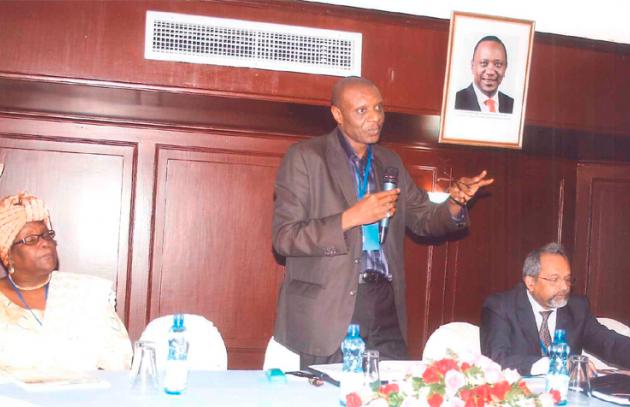31 Mai 2013
A Policy Forum was organized on 16 May 2013 at Nairobi (Kenya)
pf_hied_ke.jpg

IIEP
Judith M. Bahemuka, University of Nairobi UNESCO-UNITWIN Chair; Ebrima Sall, Executive Secretary, CODESRIA; N.V. Varghese, Head of Governance and Management unit, IIEP. ©IIEP
Alt Text:
IIEP presents its research findings on Governance reforms in higher education in Africa
Title Text:
IIEP presents its research findings on Governance reforms in higher education in Africa
Globally, the higher education sector is in a process of revitalization. Between 2000 and 2010, more than 7 million students were added to the system annually globally. Africa lags behind other regions in terms of higher education enrolment. In 2010, the gross enrolment rate in higher education in sub-Saharan Africa was 7%, compared to 76% in North American and the European region, and a global average of 29%. However, a look at the growth rates in enrolment reveals that Africa is the fastest-growing higher education region in the world.
These high rates of growth of higher education in Africa in the past decade are partly due to various reforms initiated. But did HE reforms lead to improved efficiency in the governance and management of HE institutions? It was to explore this question that, in 2010, IIEP launched a research study on “Governance Reforms in Higher Education”. The first phase of the study was conducted in Asian countries (Cambodia, China, Indonesia, Japan, and Viet Nam) in 2010. The second phase was launched in Africa in 2011. The countries selected for francophone Africa were: Burkina Faso, Cameroun, Morocco, and Senegal. Those for anglophone Africa were: Ethiopia, Ghana, Kenya, Nigeria, and South Africa.
In the anglophone African countries, the study focused on issues related to autonomy in Ethiopia and Nigeria; the performance contract (PC) system in Kenya; the internal organization and operations initiated in the University of Ghana; and the South African reforms of 2003 in planning and funding to steer the HE system in the country.
Findings, dissemination and follow-up
Although the measures studied varied among countries, a closer examination reveals that they all had in common a move towards market-friendly reforms and institutional autonomy. The reforms redefined the role of the state more in terms of developing a framework for operation and regulating the system than in financing, managing, and controlling institutions of higher education.
On 16 May 2013, IIEP, in collaboration with the University of Nairobi and the generous support of the Carnegie Foundation organized a Policy Forum for sharing and disseminating the findings of the studies from a regional perspective. The Policy Forum also addressed the implications of governance reforms for institutional effectiveness, and drew implications for designing and introducing such reforms in other countries in the region. Around 75 senior policy-makers, institutional heads, professionals, and researchers from 12 African countries and 16 organizations/institutions participated in the event. Prof. Crispus Makau Kiamba, Permanent Secretary of the Ministry of Higher Education, Science and Technology, Kenya, inaugurated the Policy Forum.
A synthesis report on the reforms in higher education in anglophone Africa based on the case studies will be published by IIEP.





